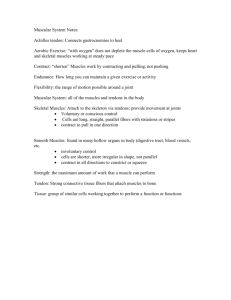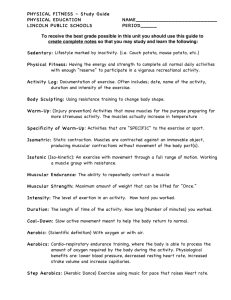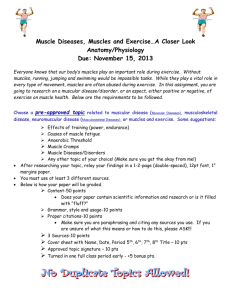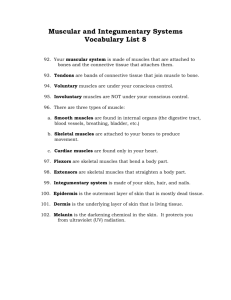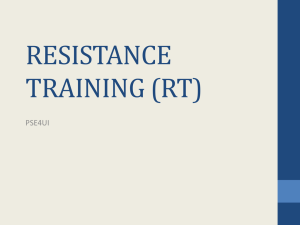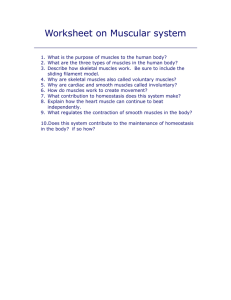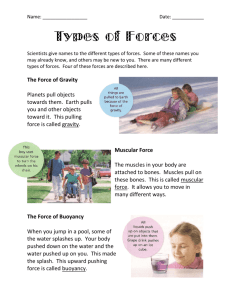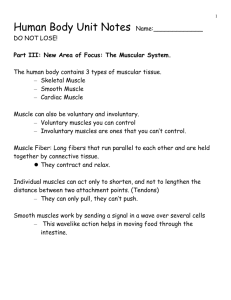Slide 1
advertisement
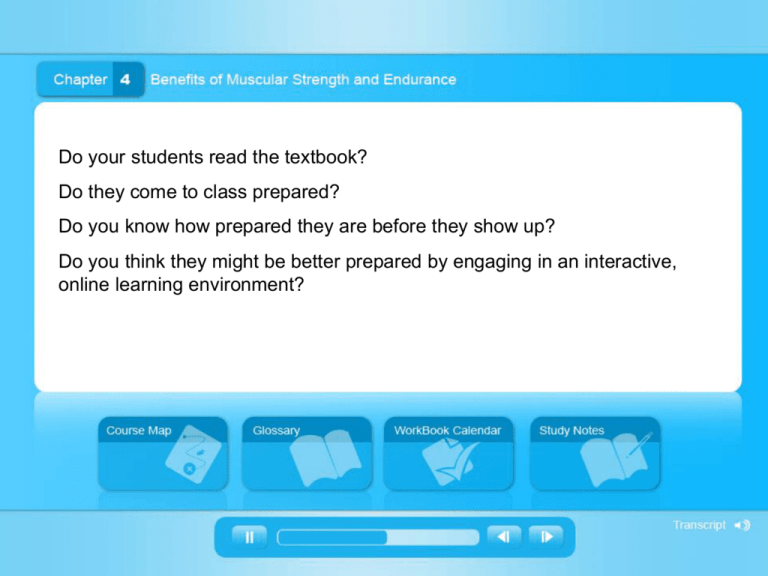
Do your students read the textbook?
Do they come to class prepared?
Do you know how prepared they are before they show up?
Do you think they might be better prepared by engaging in an interactive,
online learning environment?
Avatar Introduction screen
And look at us
now!
Hi, we’re former students, and we took the
Fit & Well Course last year, just like you
are now. We got “A’s”.
And now, we’re here to help you.
Chapter Overview
Chapter Objectives
After reading this chapter,
you should be able to:
Describe the basic physiology of muscles and how strength
training affects muscles
Define muscular strength and endurance and describe how
they relate to wellness
Explain how muscular strength and endurance can be
assessed
Apply the FITT principle to create a safe and successful
strength training program
Describe the effects of supplements and drugs that are
marketed to active people and athletes
Explain how to safely perform common strength training
exercises using free weights and weight machines
This chapter isn’t just for your class.
This chapter is for you. Don’t forget
that. The information that {other
avatar’s name} and I serve up during
your progress will all be relevant to your
class discussions, but it is also fully
applicable to your every day life….
Critical Thinking Question
So, have you been
paying attention so far?
Let’s test your critical
thinking and see what
you think about all this..
Now that you’ve been introduced to the subject matter of this chapter, what do
you think is your current level of muscular strength? Do you think it can be
improved, and if so, what would it take for you to make changes?
**Type in your answer here**
Basic Interface and open Workbook Calendar
Pre-Test
Question #1:
For women, weight training typically results in
which of the following?
A.) Bulky muscles
B.) Significant increases in body weight
C.) Improved body image
Get ready, because here you’re
about to engage in an exercise
that examines how much you
already know about muscular
strength and endurance.
Pre-Test with Feedback
Question #1:
For women, weight training typically results in
which of the following?
A.) Bulky muscles
B.) Significant increases in body weight
C.) Improved body image
You are so right! The answer is C. Because
the vast majority of women have low levels of
testosterone, they do not develop large
muscles or gain significant amounts of weight
in response to a moderate weight training
program. Men have higher levels of testosterone,
so they can build large muscles more easily.”
Content Presentation
Fast-twitch fibers contract more rapidly and
forcefully than slow-twitch fibers but fatigue more
quickly. Although oxygen is important in the
energy system that fuels fast-twitch fibers, they
rely more on anaerobic, nonoxidative metabolism
than do slow-twitch fibers. If your memory is
working, this should sound familiar, since you
learned all about energy systems in Chapter 3!
Term Association Matching
Dimensions of Diversity
Discussion Board Exercise
Conversation Simulator
Conversation Simulator
The student answers commonly
asked questions about the chapter
in a branched simulation.
For example, “Does a person
improve muscle strength faster by
training everyday?
Post-Test
Question #1:
For women, weight training typically results in
which of the following?
A.) Bulky muscles
B.) Significant increases in body weight
C.) Improved body image
Get ready, because now it’s
time to take the final posttest. Before you take the test,
you may want to go through
the chapter summary
because this test counts!
Avatar Customization Screen
Requires students to think, do, collaborate to complete assignments.
Provides coaching and motivation.
Tracks progress clearly by completion, scoring, and personal development.
Provides snapshot or drill down of student preparation before class begins.
Choose assignments and add your own.
